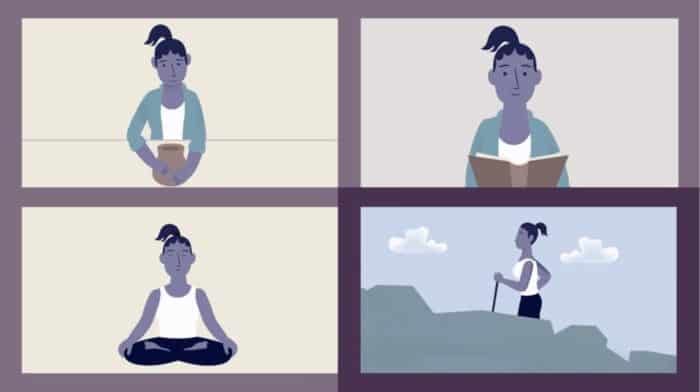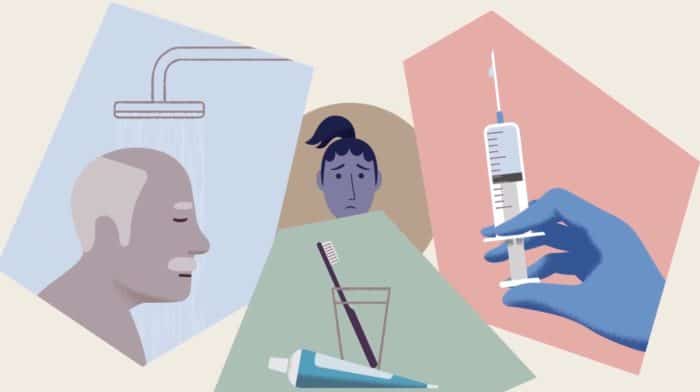Pain Management
Pain is complex, and there are many treatment options, medications, therapies, and mind-body techniques. Learn the benefits and risks of each, including addiction and how to use medication responsibly. If the person you’re caring for is in pain,you likely want to do everything you can to help them find relief. However, many people would rather try to live with their pain than treat it with medication because they’re afraid of becoming addicted. In this video, we’ll give you some tips on how to help someone use their pain medication responsibly, and outline a few strategies for managing pain without the use of prescription drugs.
If the person you’re caring for is in pain, you likely want to do everything you can to help them find relief. However, many people would rather try to live with their pain than treat it with medication because they’re afraid of becoming addicted.
In this video, we’ll give you some tips on how to help someone use their pain medication responsibly, and outline a few strategies for managing pain without the use of prescription drugs.
The process of dealing with pain is different for everyone. The person you’re caring for’s pain management needs will depend on a number of factors, including why the pain is happening, how long it’s been going on, and what they’ve done to manage it in the past.
Regardless of their medical history, there are a few things you can do to help prevent them from becoming addicted to their pain medication.
Start by making sure they follow their doctor’s orders. Create a calendar for their medication, and use a pill container that will allow you to keep track of their intake.
Only use one doctor for their pain medication, and ask them to prescribe the lowest dose needed to treat their pain.
Get their prescriptions filled at the same pharmacy every time, and make sure that the pharmacist is aware of any over-the-counter or natural medications that they’re taking.
Make an effort to dissuade them from self-medicating with alcohol or street drugs, and stop their medication as soon as the pain is resolved.
If the person you’re caring for wants to try managing their pain without medication, there are a number of ways you can support them in this decision.
Health professional services like massage, physiotherapy, and chiropractic treatment can all help to relieve pain, so talk to their doctor about getting a referral.
Applying hot or cold treatment to sore spots can also help to manage pain. If they’re unable to apply these types of treatment themselves, offer to assist them by holding a heating pad or ice pack in place for them.
Many people find that light exercise like walking or yoga can help to reduce pain as well. Suggesting that the two of you work out together may help motivate them to try it out. Start slow, and be patient if they aren’t able to keep up with your pace.
Stress and anxiety can increase the body’s perception of pain, so encourage the person you’re caring for to learn a few simple stress-reduction techniques like deep breathing or meditation.
Distracting them from their pain may also help. This could include watching a movie together, listening to music, or participating in a hobby that they enjoy.
If the person you’re caring for is a smoker, gently remind them that smoking decreases circulation and can add to their pain.
Finally, make sure that they are eating a healthy and well-balanced diet. Getting the proper nutrients and maintaining a healthy body weight will both help to reduce pain, so work with them to plan out healthy meals you know they will enjoy.
Coping with pain is never easy, so be sensitive to the fact that you may need to try out a few different methods before you find one that works.
By keeping in close contact with their healthcare team, monitoring their intake of pain medication, and trying out alternative pain reduction strategies, you can help the person you’re caring for manage their pain in a way that’s both safe and effective.
Be sure to visit our CareChannel website for more caregiver support and resources.






